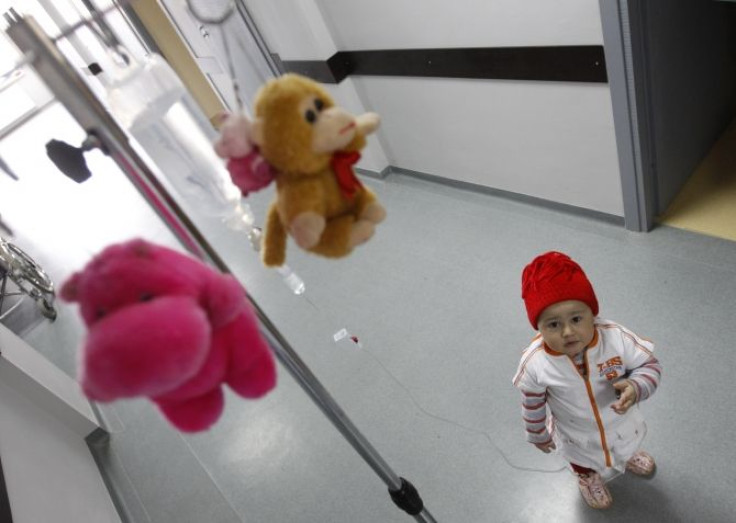Unique Double-Hit Drug, Potential Leukemia Treatment

A new drug using a 'double hit' approach to stop the cancer from developing shows potential in leukemia treatment.
The drug works by targeting FLT3 gene. About 30 percent of acute myeloid leukemia (AML) patients have a fault in this particular gene that makes the cancer harder to treat.
The drug stops cells from proliferating. In healthy blood cells, the gene FLT3 signals the cells to grow while another protein called Aurora kinase helps in cell division. This process goes out of control in people who have faulty FLT3 gene.
The drug also destroys cells if they develop faulty FLT3 gene.
"There has been great interest in using FLT3 drugs to treat AML, but their effectiveness has been limited because leukemia cells gain new mistakes in the FLT3 gene, causing resistance," said the study lead author Dr. Spiros Linardopoulos, leader of the Cancer Drug Target Discovery Team at The Institute of Cancer Research.
Half of all mice that were treated with the new drug were completely free from the cancer compared to about a quarter of mice that were treated with other drugs that block FLT3 activity.
"Our new drug has the potential to overcome this and has a range of possible uses in AML – as a first line of attack for patients with faulty FLT3, in particular in those over 60 who don’t tolerate chemotherapy well, and also to treat leukemia patients who have relapsed," Dr. Linardopoulos said.
"We're excited about the potential of our new ‘double hit’ drug and are now planning to take it into clinical trials to see if it is effective in patients," said Professor Paul Workman, director of the Cancer Research UK Cancer Therapeutics Unit at The Institute of Cancer Research.
According to American Cancer Society, about 13,780 new cases of AML will be diagnosed in U.S. this year and most will be in adults. More than 10,000 people are likely to die this year from AML.
"By creating cells in the lab that mimic how drug resistance develops in AML the researchers were able to show that their new drug delivers a ‘double hit’ to halt cancer cells in their tracks. Next they will test the new drug in patients to see if it has the potential to treat people with aggressive AML," said Dr. Julie Sharp, senior science information manager at Cancer Research UK.



























